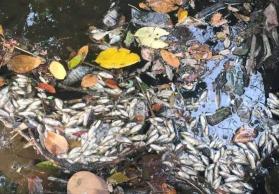Special Report: Ex-Federal Agents Confirm US Drugs and Arms Dealing in 1980s El Salvador
In mid-October, the Mexican magazine Proceso and the Fox News network published revelations about US Central Intelligence Agency (CIA) activities in Central America in the 1980s that have unearthed a shocking entanglement of drug-smuggling, arms-dealing and murder within covert US counter-revolutionary programs. In separate interviews, three former CIA and Drug Enforcement Agency (DEA) agents confirmed that the CIA ordered the notorious 1985 assassination of a DEA agent in Mexico. Until now, agent Enrique “Kike” Camarena was believed to have been killed by a Mexican drug cartel. In fact, the execution was performed by Felix Rodriguez, a Cuban anti-Castroite-turned-CIA-agent who, according to the Salvadoran online magazine Diario1, coordinated an extensive CIA arms and drugs operation through El Salvador’s Ilopango Airport behind the DEA’s back.
As Diario1 reports, between 1984-1985, pilots carrying Colombian cocaine left Ilopango for the US, returning with cash used to buy arms for the Reagan administration-backed war against the revolutionary Sandinista government in neighboring Nicaragua. The US-government's drug ties, acknowledged in the 1986 Kerry Committee Report, formed just a small part of the elaborate conspiracy that would become known as the "Iran-Contra affair." “The United States government played both ends against the middle. We were running guns. We were running drugs. We were using the drug money to finance the gun running operation,” former CIA pilot Tosh Plumlee told reporters. In the interviews, the former agents affirmed that Camarena was murdered after his discovery of the CIA’s illicit methods of financing the Contra war.
Felix Rodriguez, Camarena’s alleged killer, is a notorious figure in the CIA’s counter-revolutionary history: in addition to participating in the frustrated Bay of Pigs invasion in Cuba and the Vietnam War, Rodriguez was part of the capture and torture of Farabundo Martí National Liberation Front (FMLN) guerilla leader Nidia Díaz in El Salvador in 1985, and was also present for Che Guevara’s 1967 execution in Bolivia.
The resurrection of Rodriguez’s shadowy role in the US counter-revolutionary wars in Central America is a sinister reminder of the lengths to which the transnational right-wing will go to stop any perceived threat against its interests in the region. As the 2014 presidential elections approach in El Salvador, familiar figures including former Reagan and Bush Administration official Otto Reich and Wall Street Journal columnist Mary O'Grady have already raised exaggerated specters of Cold War communism against the FMLN as the leftist party campaigns to win a second term in power. Decades may have passed, but the FMLN’s revolutionary project has only just been given a chance to embark, and 2014 will mark the crossroads that determines if the gains begun under this administration will be allowed to deepen and expand, or if El Salvador will suffer a return to the failed neoliberal policies of the past.
Click HERE for information on the CISPES 2014 elections observation mission and how you can be a part in defending democracy and justice in El Salvador!


 "I am a CISPES supporter because continuing to fight for social justice and a more people-centered country means continuing the dream and sacrifice of thousands of my fellow Salvadorans who died for that vision.” - Padre Carlos, New York City
"I am a CISPES supporter because continuing to fight for social justice and a more people-centered country means continuing the dream and sacrifice of thousands of my fellow Salvadorans who died for that vision.” - Padre Carlos, New York City

